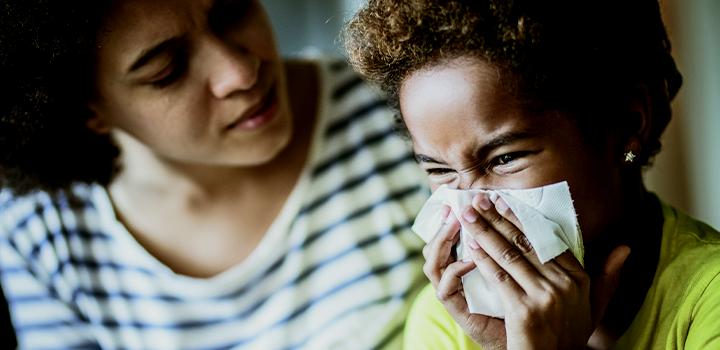Playdates during a pandemic: Is it safe to let kids play together?

The rampant rise of COVID-19 infections across the world has had a significant impact on all of our lives. Many countries, including our own, have already implemented drastic measures to try and flatten the infection rate curve. Physical distancing and now the strict stay-at-home containment measures are key, and apply to playdates between children too.
With schools across the country now closed, children are having to settle within the confines of their homes and establish ‘a new normal’ for the next little while. This is an adjustment for parents and children alike.
The world (just about) in isolation
“No one yet knows for sure exactly how long this period of physical distancing and isolation will need to last. What we do know is that the infection rate curve needs to be flattened to protect the health of every citizen in every country,” says Dr Noluthando Nematswerani, Discovery Health’s Head of the Centre for Clinical Excellence. “And that means drastic steps have to be taken.”
Many school programmes are in the process of adapting and implementing online learning facilities to continue the education curriculum. Parents and children now need to adjust at a time when person-to-person contact is being drastically minimised.
This can be difficult when changes are so dramatic and implemented so quickly. It’s human nature to take a little time to settle in to a new normal – for adults and children alike.
Should you allow your children to play with others?
While schools and education departments guide the process of continued learning under new circumstances, for parents, the added challenge will be in managing their children’s downtime.
“Kids are social creatures. Play is an important part of development and shouldn’t be discouraged,” says Dr Nematswerani. “We just need to find new ways of allowing this. For now, this means that the usual playdate is not in anyone’s best interests.”
Current physical distancing measures include stopping just about all kinds of getting together – for adults and children alike. Keep practising essential hygiene habits even though children are housebound at the moment. Children who live in the same house can play together if they’re well, but parents need to exercise safe distances and maintain hygiene practices as much as possible during the strict containment period.
It’s important to take this period of isolation seriously. Health authorities have implemented these interventions for good reason. If COVID-19 cannot be adequately contained, we risk that the infection rate will continue to climb exponentially.
That’s why it’s important to understand risk
To understand why allowing your children to play with others – in the physical sense – isn’t recommended, understanding some of the risks associated with transmission is important:
- Immunity: As a viral infection that is new to humans, none of us currently have immunity to it.
- Highly contagious, even before you know you’re ill:
- Many people who are exposed to the virus do not develop symptoms right away, but can still transmit the virus to others.
- You can easily transmit the virus even if you have mild symptoms.
- If you compare transmission rates to the common cold or influenza, COVID-19’s rate is 1.5 - 2 times higher.
- Pathogens linger: COVID-19 can remain on surfaces for hours at a time can also survive in the air. So, aside from having to keep a physical distance between people, things we touch can also spread this highly infectious virus.
“Further treatment and preventive measures are still in clinical development. This makes it even more important to help reduce our odds of falling ill. That includes being in the company of others, whether that group is small or large,” says Dr Nematswerani.
If not in person, what about getting together virtually?
Physical playdates with other children are not possible during enhanced containment measures, but there are other ways for them to maintain their relationships. Going virtual with playdates is your best bet right now, and it’s reasonably simple to do.
“Get tech-savvy. Group FaceTime, video chats, WhatsApp calls, Skype sessions, Zoom, Google Hangouts and Facebook Messenger chats are great ways we can all keep in touch while in isolation,” she says.
Parents can make this fun for children. Integrate games and set themes to spark creativity and keep children amused. Kids and parents can get creative and come up with anything that tickles their fancy: virtual card games, book club or story time, arts and crafts projects, hosting virtual tea parties, or teaching each other different kinds of activities such as a new dance or type of sport. Kids can also host virtual talent competitions of their own.
An electronic pen-pal system could also be fun for children. Many adults still remember writing letters to pen pals back in the day – writing letters, sending them through postal services and waiting for a reply. If your children are young, you can ask them to draw pictures or write physical letters, then take photos and send them to friends.
Some parents have also introduced a reward system using monopoly money to encourage children to help parents keep the home clean and neat.
Opportunities to get creative are endless. Parents and kids can find ways to share stories and goings-on with loved ones while maintaining a safe distance during this time.
Parents and others must ensure harmony between participants of a virtual set up by keeping an eye and an ear to the ground during virtual playdates – the same as during normal in-person activities – to maintain order and happiness all round.
Quick tips for parents to remember
Here are some activities that are safe to do at home:
- Gardening
- Physical activities (in your own garden) – such as a soccer game between your children
- Indoor games
- Cooking together
- Reading books and enjoying television / movies
- Using digital means to connect with others – such as video calls
- Telephoning friends, family and elderly neighbours
“Many of us are experiencing a health pandemic for the first time, and so may be understandably anxious and unsettled. This is okay. If we arm ourselves with correct information and remain reasonable in our day-to-day dealings with it, we can cope better. As adults, when we cope better, we don’t transfer as much anxiety onto children who likely have a far more limited understanding about what’s going,” says Dr Nematswerani.
“Focus on what you can do, instead of worrying about what is beyond your control. Reassure your children by explaining things to them in a way they’ll understand. Focus on remaining healthy together and making creative use of ways to keep spirits up and maintain a healthy lifestyle,” she concludes.
ALL MEDICAL INFORMATION FOUND ON THIS WEBSITE INCLUDING CONTENT, GRAPHICS AND IMAGES, IS FOR EDUCATIONAL AND INFORMATIONAL OBJECTIVES ONLY. DISCOVERY HEALTH PUBLISHES THIS CONTENT TO HELP TO PROTECT AND EMPOWER ALL SOUTH AFRICANS BY PROMOTING A BETTER UNDERSTANDING OF COVID-19.
Find a healthcare professional near you
Find a doctor or hospital near you online or by using the Discovery app.
Related articles

Outbreak of the 2019 novel coronavirus
The 2019 novel coronavirus (2019-nCoV) has caused an outbreak of fatal respiratory illness first detected in Wuhan, China. This is a completely new strain with no vaccines available. The best way to prevent infection is to avoid being exposed to this virus.

Understand the Novel Coronavirus (COVID-19) and prevent infection
No country is immune to the spread of the Novel Coronavirus - officially named COVID-19 by the World Health Organization (WHO). The outbreak has reached pandemic proportions and been declared a global public health emergency.

Novel Coronavirus - wash your hands of the threat
As toddlers, we learnt to wash our hands. But, did we ever master the skill to the extent that is needed to wash pathogens off our hands, and save lives? Multiple studies show people don't wash their hands at the right times, in the right way or for the right amount of time. We contaminate the things and people we touch with the germs we carry on our hands.